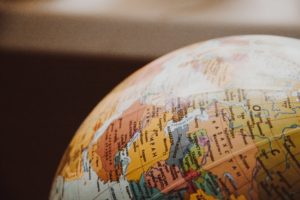
Mexico experiences a very large flow of migrants in its three borders. An estimate of 300,000 immigrants reach Mexico from Central America annually as they look for a way out of their rural poverty and bad living conditions. Even though the life of an immigrant is not very easy, they come with the intention of bettering their economic situation, as well as their personal and family development. Most migrants that settle in the Mexican state of Quintana Roo come from Guatemala, El Salvador, Honduras, Belize, Argentina, and Cuba.
Nonetheless, many of the migrants do not reach their goals and continue to live in a lack of economic means and opportunities. The human right to mobility is a basic principle, and therefore, we should try not to marginalize migrants in Mexican territory. Migratory issues have forever been very important topics for countries and their foreign policies so public officers abroad should be very careful in trying to assist appropriately vulnerable migrants.
The state of Quintana Roo is a touristic spot of international recognition. This is why it has been a very attractive place for migrants to settle even though salaries, as well as the standard of education and life, are higher in other places. This contrasts with other poor rural zones in Mexico and Central America. Regardless, migrants that establish themselves in Quintana Roo usually do so temporarily, as they look for another place to establish themselves. Sadly, their irregular migratory condition makes these migrants prone to exploitation, and a vicious circle is set, as people are constantly coming and going. Businesses in the touristic sector and organized crime take advantage of this irregularity of migrants to pay them lower wages and traffic migrant women. In addition to the low wages and lack of law mandated benefits, migrants are abused, exploited, and are threatened with deportation. The WYA Declaration on Migration and Development believes in the role of the state in this narrative since “states have the responsibility to maintain peace and security in a transparent manner and have the right to regulate migration. Where States do regulate migration they must do so in accordance with their national and international obligations, and must always protect the human dignity of all migrants, in particular refugees, asylum seekers, and internally displaced persons.”
However, the periods of time migrants stay in Quintana Roo are very short since it is hard to try to regularize their migratory situation there. This is also affected by the fact that migrants are scared of being deported and have a lack of knowledge of legal procedures to have a legal stay in Mexico.
Physical barriers are not the only barriers migrants face when they leave their country for a better life. There are many other barriers that make this “dream” of them much harder to achieve than what you would think. Cultural shock is also a big problem that migrants face that takes place in the topics of food, attire, religion, to mention a few.
Currently, the Instituto Nacional de Migración (National Migration Institute of Mexico) gives migrants support with information, orientation, food, shelter, medical attention, and help to make them part of the Mexican workforce. Since the implementation of programs such as: Programa Somos Mexicanos, Grupos Beta, Oficiales de Protección a la Infancia, Programa de Repartición, Programa Paisano, Programa Temporal Regularización Migratoria, Programa Viajero Confiable, y Programa Frontera Sur, to name a few, have helped thousands of migrants to better their situation in Mexico. Nonetheless, there is a lack of non-profits in Quintana Roo, like Casa del Migrante in other states, that help migrants adapt to Mexico and give them counseling. These social initiatives are vital to the respect of the dignity and therefore worth of migrants.
Mexico and the rest of the world have to seek a way not only to guarantee human rights to all, including foreign migrants, but create a synergy that promotes human development and the authentic development of nations. After all, “migrants contribute economically to the development of their new communities through their skills and participation in local markets whilst simultaneously contributing to their countries of origin through remittances. Regardless of the migrant’s economic contribution into a community, governments should place the respect of the human dignity at the center of their migration policies, which will result in the development of the full potential of all persons (WYA Declaration on Migration and Development).”
[su_divider top=”no”]
Written by Daniela Ortiz, a Latin America intern. This blog was originally written in Spanish.







